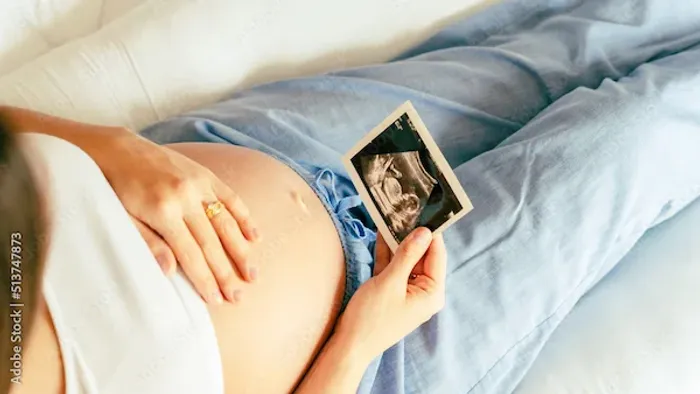Pregnancy Symptoms & Development: A Comprehensive Guide
Explore a comprehensive guide to pregnancy symptoms, stages, and baby development from early signs to labour. Learn about common and rare pregnancy symptoms, and tips for maintaining health during pregnancy.

Written by Dr. Sonia Bhatt
Last updated on 3rd Jul, 2025

Introduction
Pregnancy is an exciting and life-changing experience, but it also brings a variety of physical and emotional changes with it. From the first signs of pregnancy to your baby's development, it’s important to know the various symptoms associated with it and the stages of this incredible journey.
Early Pregnancy Symptoms (Weeks 1-6)
The first few weeks of pregnancy are often marked by subtle yet significant changes in your body. During weeks 1 to 6, many women begin to notice the early signs of pregnancy, which can vary from person to person. These early symptoms are often triggered by hormonal fluctuations and the body’s preparation for supporting a growing baby.
Missed Period: A missed period is one of the most common early signs of pregnancy. However, some women may still experience light bleeding or spotting during pregnancy, so it’s important to take a pregnancy test if you suspect you’re pregnant.
Morning Sickness: It refers to nausea and vomiting that typically occur in the early stages of pregnancy, around weeks 4 to 6. Despite its name, it can happen at any time of the day. Hormonal changes cause morning sickness, specifically the rise in human chorionic gonadotropin (hCG) levels. Eating small meals throughout the day, staying hydrated, and avoiding strong smells can help reduce symptoms.
Fatigue: You may feel unusually tired or fatigued in the first trimester. This is due to the increased production of the hormone progesterone, which can make you feel more tired than usual. Adequate rest, healthy eating, and light exercise can help combat this exhaustion.
Breast Tenderness: Changes in your breasts are some of the first signs of pregnancy. You may notice that your breasts feel tender, swollen, or sore, and your areolas (the area around your nipples) may darken. These changes are due to the surge in pregnancy hormones and are preparing your body for breastfeeding.
Frequent Urination: As your pregnancy progresses, you may need to use the bathroom more frequently. This happens because the growing uterus puts pressure on the bladder. Early on, this symptom may not be as pronounced, but it can become more noticeable as pregnancy progresses.
Second Trimester Symptoms (Weeks 13-26)
The second trimester is often considered the most comfortable phase of pregnancy. Many of the early pregnancy symptoms start to subside, and you may begin to experience more visible changes in your body.
Growing Belly and Weight Gain: By the second trimester, you’ll begin to notice physical changes as your baby grows. Your belly will start to expand as your uterus stretches to accommodate your developing baby. This is also when weight gain becomes more noticeable, which is normal.
Increased Appetite: Hormonal changes can lead to an increase in hunger during the second trimester. It’s important to listen to your body’s hunger cues and ensure you eat a well-balanced diet with plenty of fruits, vegetables, lean proteins, and whole grains.
Stretch Marks: You may develop stretch marks as your skin stretches to accommodate your growing baby bump. These can appear as pink, red, or purple lines on your abdomen, breasts, or thighs. While stretch marks are common and harmless, moisturising your skin with oils or lotions that promote elasticity may help reduce their appearance.
Leg Cramps: Many pregnant women experience leg cramps during the second trimester, often at night. To alleviate cramps, try stretching your legs before bed, staying hydrated, and ensuring you get enough calcium and magnesium in your diet.
Heartburn and Indigestion: As your baby grows, your uterus may put pressure on your stomach, leading to heartburn or indigestion. Avoid large meals, spicy foods, and caffeine to manage these symptoms. Eating smaller meals throughout the day and sitting up after eating can also help.
Increased Energy: Unlike the first trimester, many women report feeling more energetic during the second trimester. The initial fatigue may subside, and you may start to feel more like yourself, ready to engage in daily activities, work, and social events.
Third Trimester Symptoms (Weeks 27-40)
The final trimester brings its own set of challenges and exciting developments as you prepare for your baby’s arrival. By this stage, your baby is growing rapidly, and your body is undergoing significant changes to accommodate their growth.
Back Pain: As your baby grows, the added weight can put pressure on your back and spine, causing lower back pain or discomfort. Good posture, sleeping with supportive pillows, and wearing comfortable shoes can help manage this symptom.
Swelling: Swelling in the feet, ankles, and hands is common during the third trimester. This is due to increased blood flow and the pressure of the growing uterus on the veins. Elevating your legs, drinking plenty of water, and avoiding standing for long periods can help reduce swelling.
Braxton Hicks Contractions: These are practice contractions that may begin to occur in the third trimester. They are usually irregular, painless, and a sign that your body is preparing for labour. If the contractions become regular or painful, you should contact your healthcare provider to rule out preterm labour.
Shortness of Breath: As your uterus expands, it may press on your diaphragm, making it harder to take deep breaths. You might notice shortness of breath or feel like you can’t catch your breath easily. Try sitting or lying in a more upright position, and avoid overexerting yourself.
Sleep Disruptions: As your belly grows and discomfort increases, getting a good night’s sleep may become more challenging. Using a pregnancy pillow for extra support and adjusting your sleeping position can help improve comfort and sleep quality.
Preparing for Labour: As you approach your due date, your body will begin to prepare for labour. This may include the softening of the cervix, the dropping of the baby lower into the pelvis, and the onset of more frequent and intense Braxton Hicks contractions.
What to Expect During Labour and Delivery?
Labour typically begins between 37 and 42 weeks of pregnancy. The stages of labour include early labour, active labour, and delivery. Each stage brings different sensations and physical changes, so preparing for each phase with your healthcare provider is important.
During the early stage of labour, contractions will become more regular and intense. The cervix begins to dilate, and you may experience other symptoms like water breaking or the mucus plug's passing. As you transition into active labour, your contractions will become stronger, and it’s time to head to the hospital or birthing centre.
Taking Care of Yourself During Pregnancy
Maintaining a healthy lifestyle is vital during pregnancy to support your well-being and your baby's health. Here are some tips to help you stay healthy throughout:
Regular Check-ups: Attend all scheduled prenatal appointments to monitor the progress of your pregnancy and address any concerns.
Stay Active: Engage in light exercise, such as walking or swimming, to improve circulation, boost your energy, and reduce stress.
Eat a Balanced Diet: Ensure you’re getting adequate nutrients like folic acid, iron, calcium, and vitamin D, which are essential for both you and your baby’s health.
Hydrate: Drink plenty of water throughout the day to stay hydrated and reduce the risk of swelling and urinary tract infections.
Rest and Relaxation: Pregnancy can be tiring, so ensure you get plenty of rest. To reduce stress, practice relaxation techniques such as deep breathing or prenatal yoga.
Conclusion
Pregnancy is a beautiful and transformative experience, but it comes with its own set of challenges. Understanding the symptoms and stages of pregnancy can help you feel more in control of your body and better prepared for what’s ahead. By staying informed, seeking regular medical care, and taking good care of your health, you’ll be able to navigate each trimester with confidence and joy as you prepare for the arrival of your little one.
Remember, every pregnancy is unique. If you have any concerns or notice unusual symptoms, don't hesitate to contact your healthcare provider for guidance and support.
Consult Top Obstetrician-Gynecologists
Consult Top Obstetrician-Gynecologists

Dr. Asha Rani Singh
Obstetrician and Gynaecologist
24 Years • MBBS DGO
Delhi
Dr Asha Rani Singh Clinic, Delhi

Dr. Sreeparna Roy
Obstetrician and Gynaecologist
8 Years • MBBS , MS (OBSTETRICS & GYNAECOLOGY), Fellowship in Infertility, Endoscopy & Ultrasonography), Fellowship in Laparoscopy & Hysteroscopy,DRM
Kolkata
Dr Utsa Basu Clinic, Kolkata

Dr. Sanjan Das
Obstetrician and Gynaecologist
15 Years • MBBS,MS
Bengaluru
Apollo Clinic, Sarjapur Road, Bengaluru

Dr. Mehnaz Rashid
Obstetrician and Gynaecologist
7 Years • MBBS, DNB (Obstetrics & Gynaecology), D.MAS, F.MAS, WALS
Bengaluru
Wellstar Polyclinic and Diagnostic Center, Bengaluru
(200+ Patients)

Dr. Rituparna De
Obstetrician and Gynaecologist
6 Years • MBBS, MS (Obstetrics & Gynaecology)
Kolkata
MCR SUPER SPECIALITY POLY CLINIC & PATHOLOGY, Kolkata




